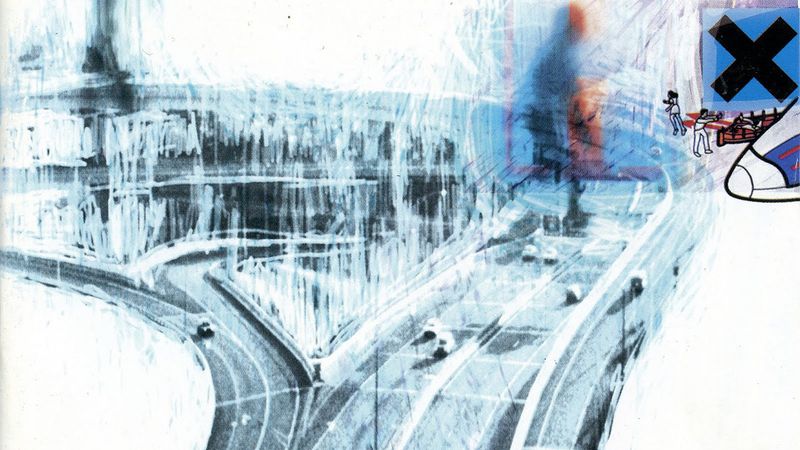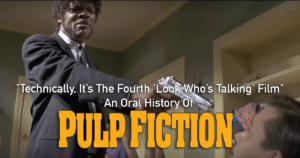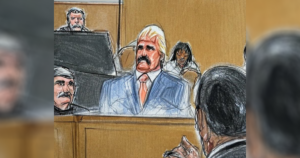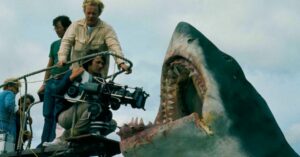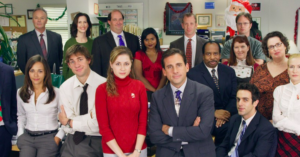In the summer of 1996, Radiohead began work on a new album that would cement its reputation as one of the greatest and most innovative bands of all time. Though its first two albums had earned it a large fan base, for many people Radiohead was still just the band that did “Creep.” That would all change with “OK Computer.”
Now, almost 20 years later, the story of the album is finally being told in the words of the people who made it. This is the oral history of Radiohead’s “OK Computer.”
Chapter 1: The Burden Of Success

Thom Yorke (vocals): Right before we started working on OK, I was doing a solo tour where I would walk out onstage and say, “‘Creep’ is a bad song,” and that would be the whole show. I did that in hundreds of sold-out shows all around the world, because I wanted people to understand that “Creep” is a bad and not a good song.
Jonny Greenwood (guitar): Even after The Bends, we were still living in the shadow of “Creep,” and that was difficult. Especially for Thom. People would come up to him after shows and say, “Hi, Thom, we are all aware that ‘Creep’ is a good song,” and he would have to tell them that it’s actually bad. This happened all the time.
Philip Selway (drums): For many years, Thom tried to pay the pope a million dollars to replace the word “Amen” with the phrase “‘Creep’ is a bad song,” but the pope wouldn’t do it because he liked the song so much. Everyone loved that song.
Colin Greenwood (bass): It all came to a head when Bill Clinton said in his State of the Union address that “Creep” was a better song than the national anthem and both Republicans and Democrats gave him a half-hour standing ovation. We all sort of realized that we needed to create something big, or this song would come to define us. And then Thom got an idea.
Ed O’Brien (guitar): When Thom came to me and said he had an idea for a new album, I knew it was going to be big, because I was at a funeral and he interrupted the whole service by riding in on a motorcycle screaming “It’s going to be big!”
Thom Yorke: I was going door-to-door telling people that “Creep” is a bad song when I found myself in a computer store. So I’m sort of sizing up the place, and all of a sudden I get this thought: What if a computer could go drive a car? Then I laughed, ’cause I got the picture of a computer drinking a pint and hanging out with his computer mates. Then all of a sudden I stopped laughing, because I got the idea of what if a computer could play guitar. I was transfixed by this idea. And that’s when I knew: We needed to do an album about that.
Ed O’Brien: Well, it’s a fascinating what-if, isn’t it? What if a computer could play guitar? I still think about it sometimes.
Thom Yorke: I came up with the title of the album on the spot. It’s the moment when you give a computer a guitar and say, “Okay, computer…let’s see what you got! Show us your stuff!”
Philip Selway: Thom explained to us that the ensuing songs would be, of course, the hypothetical songs that the computer plays on the guitar.
Jonny Greenwood: The only person who didn’t think the idea of a computer playing guitar was captivating was my brother, Colin.
Colin Greenwood: I was wary of the whole computer idea because I didn’t believe it was possible for a computer to play guitar.
Thom Yorke: Colin says, “No no no, this won’t do; I’m not going to do it.” I was devastated. I wanted to explore the question of what if a computer could play guitar. I knew this was the way to do the album. I told him how much I believed in it, and, to his credit, he listened.
Colin Greenwood: I was skeptical up until the moment when Thom drew me a picture of a computer with mechanical hands holding a guitar and I could sort of see it. How a computer could play guitar, I mean. Once I saw that picture, I was on board.
Philip Selway: We started recording the next day.
Chapter 2: On Their Own Terms

The band was ready to get to work on the new album. But this time around, they would produce it themselves. While this afforded them a certain amount of creative freedom, it also presented its own unique set of challenges.
Thom Yorke: From the beginning, my goal was to make an album that would get us all sent to jail for the rest of our lives.
Ed O’Brien: Thom’s problem with Pablo Honey and The Bends was that neither of those albums had resulted in jail time for the band. I don’t know why he wanted us all to go to jail, but he was very insistent that we should all spend 20 to 30 years in jail to be considered a real band.
Philip Selway: We wanted to record [the album] in a Best Buy in order to be close to computers, but they kept kicking us out, so we eventually moved into our own studio in Oxfordshire.
Jonny Greenwood: We love recording there because we’re allowed to chew gum inside the booth. Radiohead is a big gum band. We love gum.
Thom Yorke: Gum is the impossible meal. It’s illegal to swallow, so you have to always be chewing it. A fabulous crime is that I actually swallow my gum all the time. I swallow 20 pieces of gum on “The Tourist,” and you wouldn’t even know it because I’m so fast.
Ed O’Brien: I definitely think Thom swallows too much gum. You’re not supposed to swallow gum. You’re supposed to chew it. I don’t know why he does that.
Jonny Greenwood: The idea was to produce [the album] ourselves so we could get it for free when it finally came out. Usually you have to pay for it, but this way we would get a copy for free. But we just didn’t have enough production experience, and it was affecting the music.
Ed O’Brien: For the first five days in the studio, we couldn’t find the light switch. None of us could see anything. Not our instruments. Not each other. The music sounded awful. We needed help.
Colin Greenwood: That’s when we brought in Nigel.
Nigel Godrich (producer): I had previously worked with Radiohead on The Bends, as well as on Thom’s solo albums Songs About Gum and More Songs About The Indestructible Meat Known As Gum, so I was very excited when they asked me to help them produce the new record.
Philip Selway: Nigel is great. He gets our music, and he gets us. We’ve worked with him for years now, and not once has he tried to steal our wallets.
Colin Greenwood: Nigel is the kind of guy who, if you set your wallet on the table and leave the room, he’s not going to steal it. He’s a good guy.
Ed O’Brien: With Nigel on board, we could really focus on the music.
Jonny Greenwood: The songwriting process was pretty organic. We’d always start by jamming on Steely Dan’s “Rikki Don’t Lose That Number,” and then whatever happened when we veered off from that would become a new song. But it always started with “Rikki.”
Colin Greenwood: “Exit Music (For A Film)” started as a “Rikki” jam; “Airbag” started as a “Rikki” jam. Every track on the album extends from us jamming on that one Steely Dan song.
Thom Yorke: I wrote a song that was just the phrase “Hitler hairdo” repeated 400 times, because I figured this would surely get us all sent to the big house for a lifetime of incarceration, you know? The band made me limit it to one mention. That song became “Karma Police.”
Ed O’Brien: One song that never made it on the album was called “The Idiot,” and it’s about an idiot who has never been on the internet before. He goes to the post office to mail a letter and the postman says, “You idiot, don’t you know there’s emails now?” And he doesn’t know, because he hasn’t been on the internet before. At the end of the song, he gets a free trial of AOL. I always liked that tune because it has a happy ending.
Nigel Godrich: A lot of people don’t know this, but Radiohead always records their albums while wearing wetsuits. One of my jobs was zipping them up into their suits at the beginning of the day. Sometimes the zipper would get stuck, and Thom or someone would have to record with a half-zipped-up suit. That only happened a few times, but whenever it did it was a whole thing.
Jonny Greenwood: We had about a day or two of recording left when Thom walked away from the studio to start building that goddamn computer.
Colin Greenwood: Suddenly, Thom’s not even interested in the album anymore. All he wants to do is work on building his stupid computer.
Thom Yorke: After exploring the question of what if a computer could play guitar, I became convinced that the only way to do the album right was to build a computer. So that’s what I did, and I named it Thom’s Computer.
Nigel Godrich: Thom sort of fell out of the process toward the end, but luckily we were able to finish the album without him.
Thom Yorke: Thom’s Computer comes with free screensavers and a program that lets you send emails to strangers that say “‘Creep’ is a bad song. Sent From My Thom’s Computer.” I am very proud of it.
Chapter 3: A Groundbreaking New Album
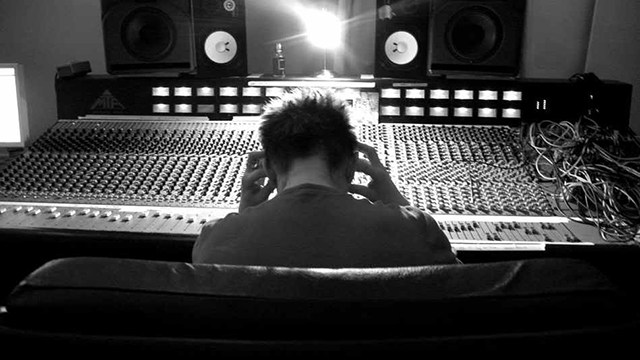
“OK Computer” was released on May 21, 1997 to widespread acclaim. It picked up multiple awards, including the Grammy for Best Alternative Music Performance. Critics and fans seemed to agree: The band had created a masterpiece. But Radiohead’s relationship with commercial success has always been complex.
Jonny Greenwood: It’s that weird thing, right? You’ve made this record that all these people enjoy, but at the same time you wish everyone hated it so much that they dedicated a whole TV channel to stepping on it in different types of high heels.
Ed O’Brien: It’s not that we didn’t like the record. We loved it. We just felt weird that all of a sudden it was the number one sex album in the world. That’s not how we intended for the album to be enjoyed.
Philip Selway: Suddenly, we hear that everyone’s fucking to this album, and I’m getting a call from the president of Capitol Records every day thanking me for creating the fuck anthem “Fitter Happier.”
Thom Yorke: Terrific, I assumed. Now, we will surely be arrested and sent to jail for igniting a sexual plague with our speculative computer music. What an idiot I was. Every judge who heard the album loved it. I got thank-you letters from them saying that OK Computer made them believe that sex was possible again in England.
Ed O’Brien: Regardless of our feelings about the album’s success, we had a great time on that tour.
Colin Greenwood: There’s one show from that tour that comes to mind. We were in the middle of an encore of “No Surprises” and Thom went into the audience. Thom drifts into the middle of this crowd of 10,000 or so people, and he just starts burrowing into the ground. Like, really tunneling. And as the song goes on he’s getting deeper, and people are following him down there. Eventually, the whole audience had followed him down into that bottomless hole, and we were all alone onstage. Three days later, Thom emerged alone from the tunnel cradling a dove, nobody else with him. Actually, no one from that audience was ever seen again. That was an amazing show.
Nigel Godrich: OK Computer was an important album because it opened the door to more music about computers doing things, like playing guitars. Now, there are albums about computers riding bicycles, boxing each other, and drinking coffee. This was inconceivable before OK Computer.
Jonny Greenwood: I’m proud of that record. Whenever I play it in public, dogs vomit. And that’s very good.
Thom Yorke: I wanted to ask the question, what if a computer could play guitar? And what did I find? Nothing. Thom’s Computer caught on fire before I could sell it to anyone, and nobody would send us to jail for creating what turned out to be the number one fuck album of the century. Both of these things were indescribably disappointing. But the silver lining is that doctors informed me shortly thereafter that I had managed to swallow my weight in gum. So, I guess it was a success after all.

